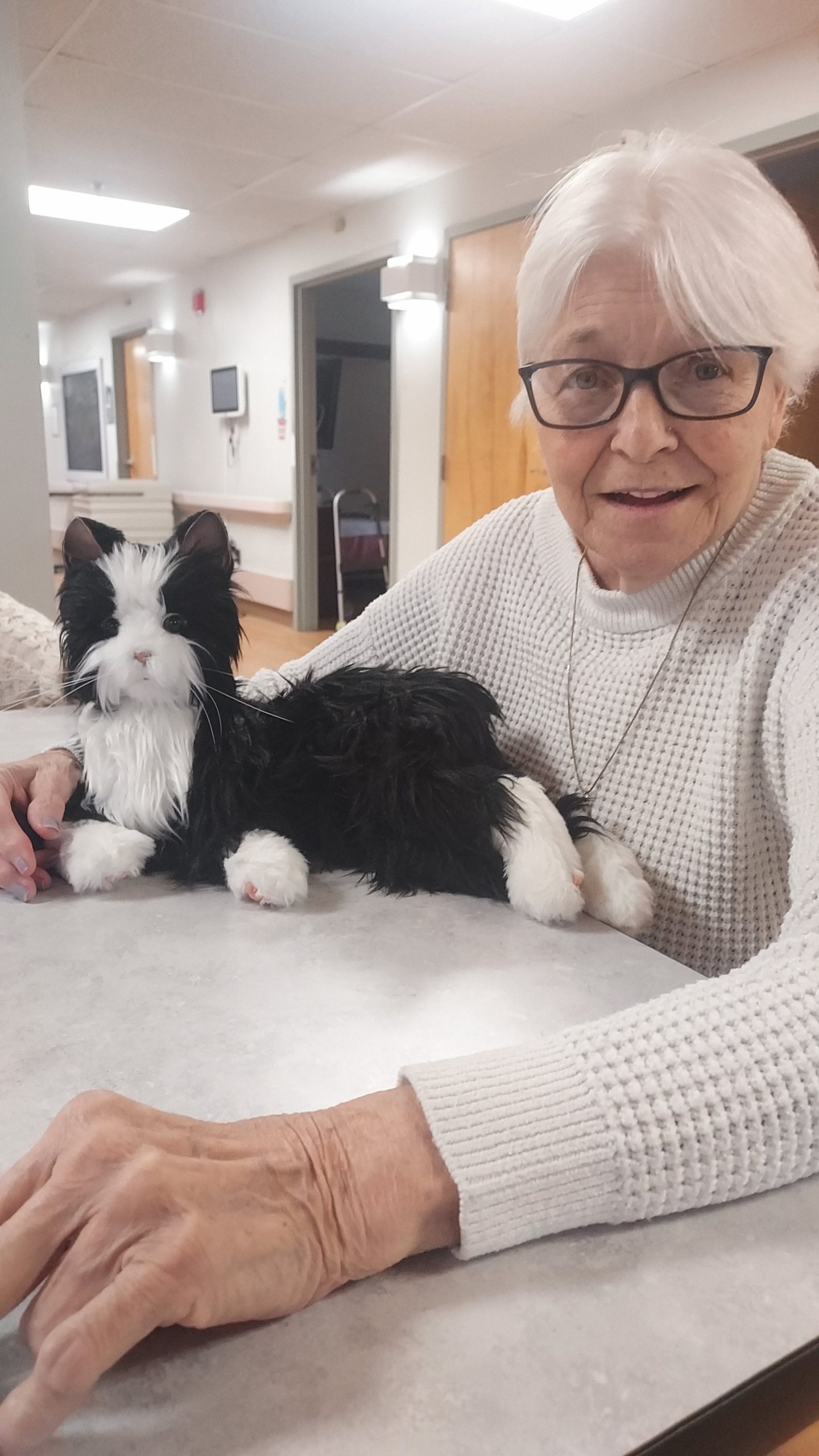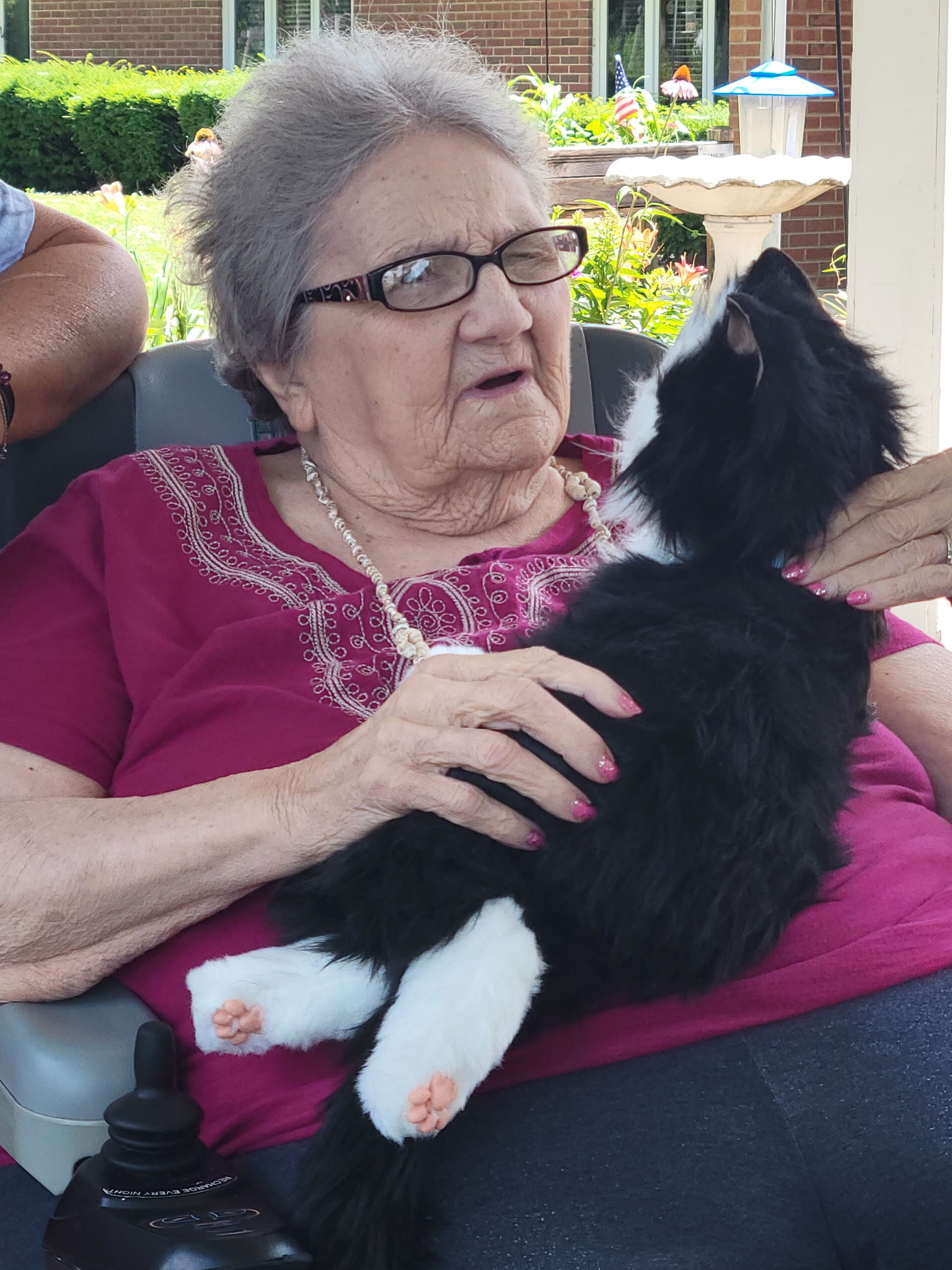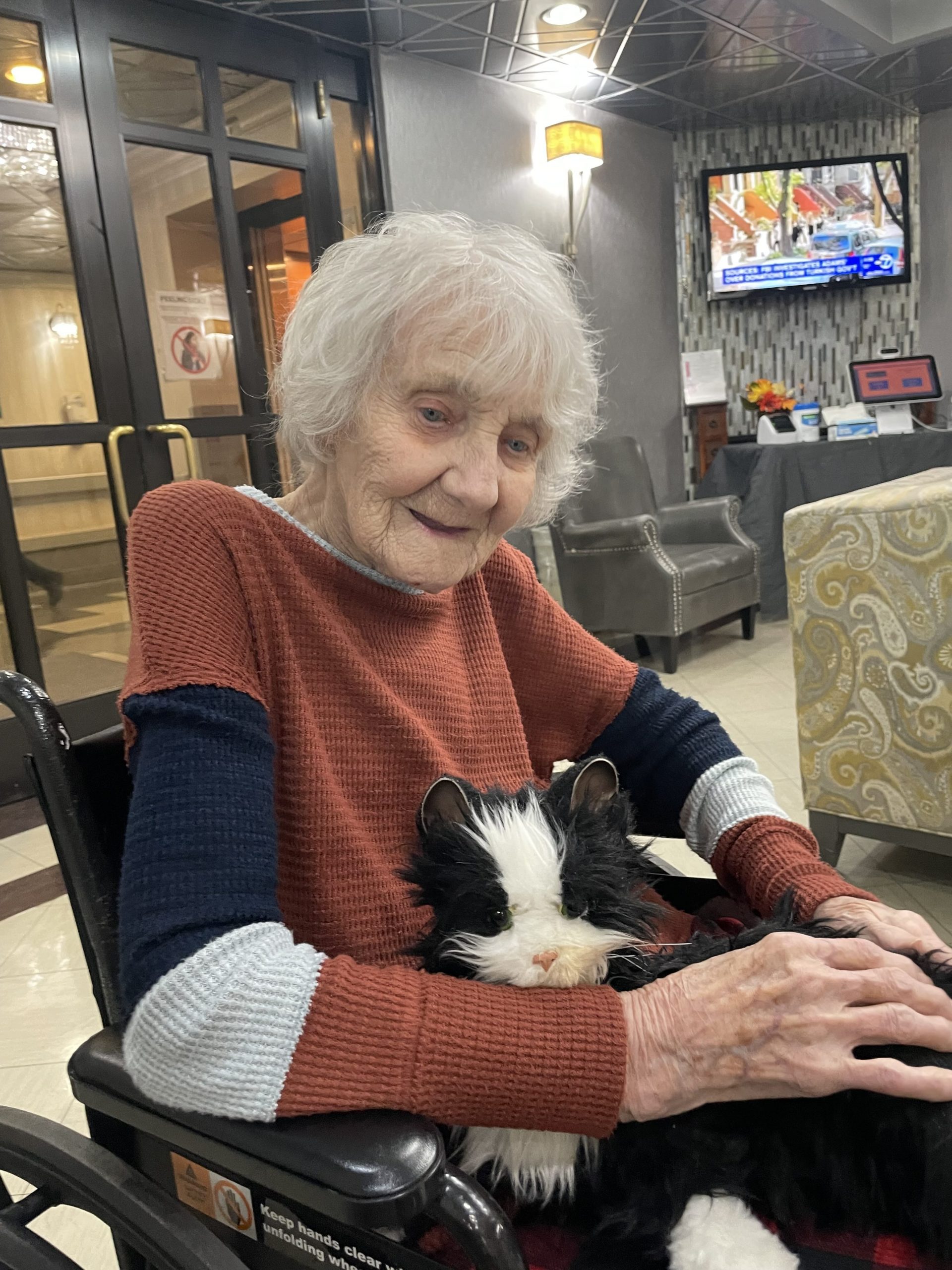Caregiver Hub: Honoring the Heart of Care
November is National Family Caregivers Month — a time to celebrate and support the millions of caregivers who bring comfort, connection, and joy to those they love. Explore Caregiver ResourcesMeet our Caregiver CommunityWho is a Caregiver?
Caregiving comes in many forms. You might help an aging parent with daily routines, support a partner through memory loss, or offer companionship to a loved one.
However you show up — you are a caregiver.
This month, we’re shining a light on those who give their time, energy, and love to ensure others are cared for with dignity and connection.
Resources
Whether you’re just beginning your caregiving journey or have been caring for years, these guides and tools are designed to support you every step of the way.
The Caregiver Guide
Download our free guide to your Joy for All Companion Pet to discover tips, benefits and expert insights to help make caregiving a little easier — and a lot more joyful.
Product Guides
Explore how to use our Joy for All Companion Pets — designed to bring comfort, spark conversation, and inspire moments of shared joy.
Weekly Caregiver Tips
Stay up to date with weekly tips from Gerentologist and Caregiving Expert, Carrie Aalberts.
Caregiver Spotlights:
Real stories of Care and Connection
In honor of National Family Caregivers Month, we invited our community to share their caregiving stories — the moments of patience, laughter, and love that define their days.
Caregiving Within Our Team
Many of us at Ageless Innovation are caregivers, too. Our experiences caring for loved ones inspire the products we create and the mission we live every day.
Ted
Fischer
CEO
Who do you care for (or have cared for)? I have participated in caring for both my Grandmother and my Dad
What does caregiving look like for you day-to-day?
My experiences were different with both of my loved ones so I will answer that question separately. My Grandmother went from independent living, to Assisted Living to Memory Care over about 15-20 years. So prior to her passing she had professional care in addition to many family members that participated. She was full of life and laughed at everything that I said… usually before I said it. Throughout my life I was the crazy grandson who would bring her gifts like a life sized blow up spiderman, or the ugliest stuffed animal I could find or anything that I thought would make her laugh. Our relationship was built on love and laughter. As she moved from AL to MC, I would never have called myself a caregiver as I continued to play the role I always had. I would visit and it was always about the fun, the joy and her infectious laughter. Other family members, like my sister, were much more involved in her day to day care and although I spent a lot of time with her, like many, I did not consider it caregiving but being a loving grandson. We gave each other a lot of joy and she was a huge inspiration as we started the Joy for All brand. She was my 1 person focus group. As she faced progressive dementia, laughter was her weapon that made everyone around her comfortable.
My Dad was my best friend. We spent a lot of time together. He was the person I always wanted to emulate in every aspect of my life. As his health declined over the last few years our relationship got even stronger. My Dad lived at home with the most amazing caregiver of all time, my Mom, who singlehandedly made sure he had everything he needed. My siblings and I participated in his care but like most of our life, not to “provide care” but to continue to spend as much time with Dad as we could. My version of caregiving was trying to be as good of a son to my Dad as he had been a father to me my whole life. Despite him being on oxygen, we continued to play golf, socialize, and watch the Red Sox. We figured out how to normalize the oxygen machine in the golf cart so he was able to play without issue. His hearing was another health issue that sometimes isolated him so in loud settings I would always sit next to him to make sure he was engaged with the group. I brought him to dozens if not hundreds of Dr’s appointments but I never looked at it as anything but a chance to spend more time with him… and translate the Dr’s orders (that he could not hear) and make sure if my Mom was not there to give her the real version of what the Dr said… Dad’s stock answer was “the Dr said I am fine”. Day-to-day caregiving to me meant trying to be a good son and help out with the things Dad needed. It is easy to see why most caregivers do not identify with that term. I think most do it all out of love and gratitude
What’s one thing caregiving has taught you?
Cherrish the great times and the difficult times. Some of the hardest moments provided some special bonds and memories.
What’s one piece of advice or encouragement you’d share with other caregivers?
One of the things that helps me deal with the loss of my Dad is that I have no regrets. I did everything I could and spent as much time as I could with my Dad (and my Mom). I have no memories of how hard it was, just that we were together through it all. That is a Blessing.
Kristen
Dimuccio
Senior Manager
Logistics & Product Development
Logistics & Product Development
Who do you care for?
I care for my parents who live close by. My Dad is 89 and my mom is 84.
What does caregiving look like for you day-to-day?
My parents live on their own and are healthy but neither drives now so most of my caregiving is focused on running errands for them or with them, taking them to appointments and helping out when they ask. I also like to pop in and visit every couple of days to check on things. When I check in they often have something they need help with. Most of the time it’s computer related (online banking is a pain point), filling out paperwork they aren’t sure about or moving something that’s heavy.
What’s one thing caregiving has taught you?
It pays to be patient and to reflect on how my actions make them feel. It is often hard for them to accept help with something they used to be able to do themselves. I try to position everything as an offer of assistance rather than a takeover. If there is resistance I don’t force the issue. I wait a few days and bring it up again until they entertain the idea and it’s their choice rather than mine.
What’s one piece of advice or encouragement you’d share with other caregivers?
Strike a balance between being helpful and taking away their independence. Also visit as often as you can – face time is important to them and it also allows you to assess subtle things you cannot see via text or phone.
Khadijah
Lewis
Senior Director,
Healthcare
Healthcare
Caregiving is a role I never signed up for, yet it has shaped me more than anything else.
There is a specific kind of weight that comes with it. The way your stomach drops when the phone rings past 10pm. The quiet fear of wondering if tomorrow will be worse. The grief that begins long before anyone passes. You learn how to make decisions you never wanted to make and how to advocate even when your voice is shaking.
And still, there is so much humanity in it. The silly, ridiculous stories (that you cannot possibly make up!) that only happen in the world of aging. The soft moments when a Temptations song is remembered or a hand is held because there is nothing else to say. Some days you are stretched past your limit. Other days you feel the quiet honor of being the person who gets to show up.
Caregiving is where love and responsibility meet in the most honest and imperfect way. To every family caregiver doing this quietly and without applause, what you are carrying matters. The world may not see it, but I like to think the people we care for feel it in our presence, our persistence, and in our love that is unwavering.
Jim
Murphy
SVP, Healthcare
I have proudly served on the Board of the National Alliance for Caregiving for over a decade. My “why” for serving on NAC’s Board: the tens of millions of caregivers who provide critical care and support for family members, friends, and neighbors. Family caregivers are the invisible army within our healthcare system–within our society—providing the equivalent of $600 billion in unpaid care annually. The most recent Caregiving in the US research reported that there are currently 63 million caregivers in the US; based on demographics and health trends, their numbers are only growing. Family caregivers deserve our appreciation, respect, and support—during National Family Caregivers Month, and year-round—as they show up every day to care for the most vulnerable among us.
A Message from our CEO, Ted Fischer
At Ageless Innovation, everything we create begins with empathy — with understanding the extraordinary people who care for others each day.
During National Family Caregivers Month, we celebrate the countless caregivers who give their time, energy, and love to ensure older adults and those living with dementia experience dignity, connection, and joy. You are the heartbeat of care — and the inspiration behind our work.
Caregiving isn’t a role; it’s a relationship built on compassion, resilience, and hope. This month and always, we honor you — the quiet heroes who make every day brighter for someone else.
— Ted Fischer
CEO & Co-Founder, Ageless Innovation
Learn more about the realities and future of caregiving in Ted’s recent op-ed on the 2025 Caregiver in America Study from the National Alliance for Caregiving.





